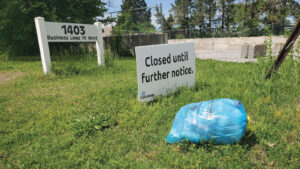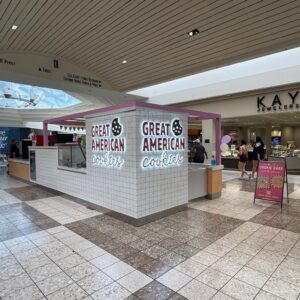Local restaurants brace for the cost of compliance.
Editor’s Note
This story was written before the end of the Missouri General Assembly’s legislative session. The story illustrates how many restaurants already provide additional benefits to employees.
In the latest development, the Missouri Senate on May 14 forced a vote on HB 567, which removes automatic increases or decreases to minimum wage beginning Jan. 1, 2027, and the paid sick leave benefits previously provided in Proposition A. The votes paved the way for repealing most of Proposition A’s changes. The bill passed through the Missouri House of Representatives last month.
Gov. Mike Kehoe was expected to sign the bill. Regardless of when signed, the law will remain in effect until Aug. 28, 2025, including the paid sick leave portion. Employers are encouraged to seek legal advice before modifying any existing workplace policies related to the repeal of Proposition A.
On May 1, most employees in Missouri began accruing paid sick leave under Proposition A, a law approved by Missouri voters in November 2024. As a bill to repeal sick leave sits in the hands of Missouri’s Senate, with voices both for and against repealing or amending its provisions, restaurant owners and business advocates are reflecting on the role that restaurants and other small businesses play in Columbia, and in cities around Missouri.
The Backbone of the Community
“We are the cornerstone of every community,” said Buddy Lahl, CEO of the Missouri Restaurant Association. “There is an illusion that restaurant owners are rich people with large operations and a human resources department, but there are many mom-and-pop restaurants with twenty employees that are the lifeblood of the town.”
Richard Walls, who co-owns The Heidelberg with his brother Rusty, knows firsthand how deeply restaurants are woven into the fabric of Columbia’s community. The Heidelberg has been a Columbia staple since 1963.
“Restaurants bring a sense of togetherness, a sense of hospitality,” Walls explained. “They provide people a home away from home. Typically, you go to a restaurant and you’re hungry or having a bad day and hopefully someone is providing hospitality, food, and a welcoming environment. We have a lot of great restaurants in Columbia, a very diverse selection of restaurants where you can get everything from sit down to take out to full service, and from fancy to down home. Restaurants give a sense of differentiation between other cities.”
At The Heidelberg and other local restaurants, the month of May brought large crowds for college graduations and other celebrations, and Walls said that is a reflection of the local restaurant scene’s importance to and impact on Columbia.
“There is only one Heidelberg, there is only one Shakespeare’s, there are a lot of great restaurants that people look forward to, and there is a sense of pride that this is our town. These are the places we love,” Walls added. “The people who visit Columbia also enjoy coming back for those experiences.”
The Backbone of the Restaurant Industry
As a service industry, restaurants rely on their employees to serve customers. Without them, restaurants can’t function.
“Employees are our most valuable prospect,” Lahl says. “Operators want to take care of their employees.”
In fact, in today’s labor market, properly compensating employees is essential to business.
“We know it’s a tight labor market right now, and we encourage employers to pay competitive wages and benefits,” said Kara Corches, president and CEO of Missouri Chamber of Commerce and Industry. “They have to do that if they want to recruit and retain workers.”
According to Lahl, the cost of goods has gone up 40 percent since COVID, while labor costs have increased by 35 percent. While menu prices have also increased in many cases, they have not increased enough to compensate for rising costs in an industry with small margins, he said.
“Operators pour their life savings into their restaurants, but they often struggle to make payroll,” Lahl says.
However, as restaurants grow, operators often add benefits for employees as they are able.
“As their business grows and they have profits, they invest that back into the business and into employees through things like health insurance, profit sharing, 401k investing or sharing, Christmas bonuses, or vacation time,” he said.
Walls noted that The Heidelberg typically employs between sixty and seventy employees, and several employees have been working at the restaurant for ten or twenty years. In his mind, there is no question that working in the service industry is taxing and demanding work.
“The restaurant business is a very labor-intensive business,” he said. “We are a full-service restaurant. Our employees take orders, cook food, clean up, and they mean a lot to our business.”
As an independent, locally-owned restaurant, Walls said he and his brother are present and involved in the day to day operations of The Heidelberg.
“I enjoy working with our staff and it’s fun to see them come in and learn and grow,” Walls he said. “I still keep in touch with a lot of people who used to work here.”
A Balancing Act
If every day was a Friday or Saturday, Walls said a restaurant would be an easy business to run. Instead, there are a range of external factors that can affect business, from world events to the weather.
“You have to control what you can control and be as efficient as possible,” he stressed.
At The Heidelberg, that has meant investing in new equipment, in restaurant maintenance, and in ongoing staff training.
“We’ve had to invest in a lot of new equipment, which makes our staff’s lives easier and ensures the safety of the food,” Walls said. “We have ongoing training for management for ServSafe classes to make sure we maintain the highest standards of food quality and food safety, and we invest in keeping things in good repair so our employees are safe at work.”
Reinvesting in the restaurant and supporting staff is top of mind for Walls, and being present and accessible to employees has helped The Heidelberg remain a fixture in Columbia.
“If we don’t have a good staff, it is hard to provide a good restaurant experience,” he said. “Our staff has a certain comfort level and longevity, and we want what is best for our staff. The nice thing about being a small independent restaurant is staff don’t have to call off to some corporate headquarters, they can come to me or my brother or a manager and we can address things.”
A Wave of Uncertainty
As restaurants and other businesses continue to navigate the details of Proposition A, Corches said it is creating a lot of uncertainty in the business community.
“There is a lot of uncertainty over this,” Corches added. “With that comes a whole host of issues that employers are trying to deal with. We want to be a state that welcomes businesses, as a growing economy keeps people employed.”
While The Heidelberg has a large staff and Walls says it is easier for them to shift people around, having staff call out of work will undoubtedly add stress to those working, and will potentially trickle down to impact the customer experience.
“If someone is sick, we don’t want them coming to work, but if they wait and cash out sick leave wages, it will create stress for other employees if the shift isn’t covered,” Walls said. “If three people call out and no one else can work, it can create longer wait times for customers and more stress on the people that are at work.”
As The Heidelberg has done since 1963, through major events like economic downturns and COVID, Walls says, “One way or the other, we will make sure everything is taken care of.”
While Walls noted that the legislation is well natured in intention, the uncertainty is unnerving to him personally, and to many other business owners. At this point, he can only speculate on how Proposition A will affect The Heidelberg.
“I can’t speak from experience because it is a new experience,” he said. “The uncertainty is a difficult challenge, but most restaurant people are positive and optimistic. You have to be.”








